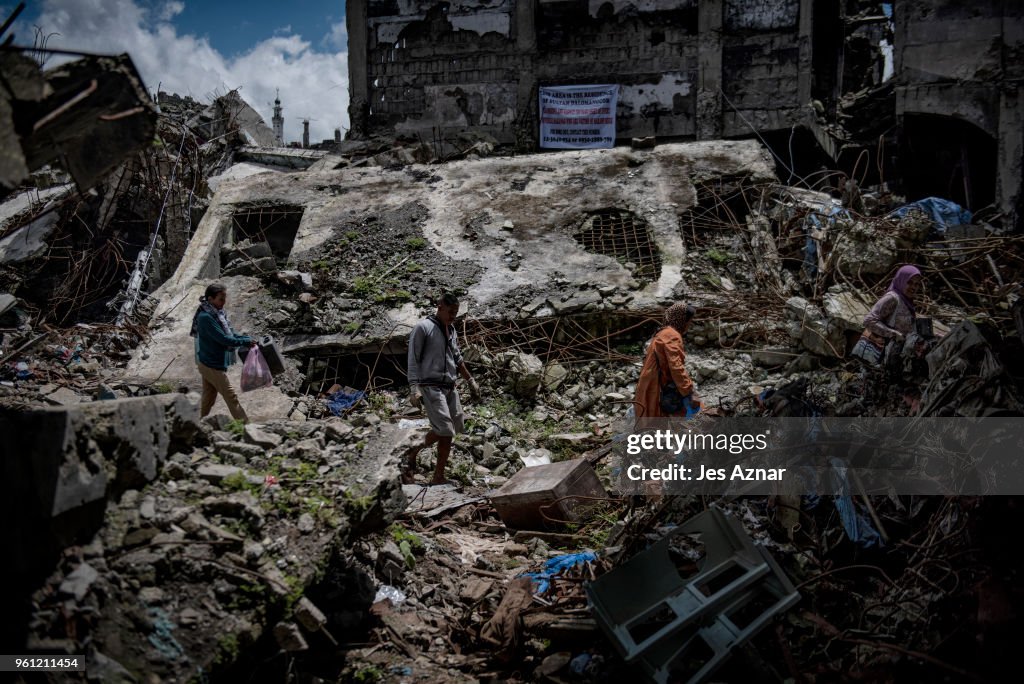Filipino Muslims Remain In Limbo One Year Since The Attack On Marawi
MARAWI, PHILIPPINES - MAY 10: Marawi residents salvage any usable items they can find from what is left of their homes as they were allowed to enter for three days in what used to be the main battle area during the war, on May 10, 2018 in Marawi, Philippines. With their homes destroyed and their properties looted or burned, thousands of families displaced during the Marawi siege which began on May 23, 2017, the holy month of Ramadan brings a wave of painful memories since Islamic State loyalists, Maute and Abu Sayyaf, took over large parts of Marawi City. Muslims all over the world, including those in Southern Philippines, stocked up on groceries last week as they began the month of Ramadan, a period when they are dedicated to fasting from sunrise-to-sundown, prayer and charity. With an estimated 27,000 families still living in evacuation centers and transition houses, many wonder when they can go home since around half of the city's infrastructure was destroyed during the five-month-long battle and martial law continues to be in place across Mindanao. President Rodrigo Duterte visited Marawi again this month pledging to provide amnesty for Maute rebels who are willing to surrender with hopes to bring momentary peace to the embattled southern island. Duterte did not make any visit to the evacuees, whose concerns remains whether reconstruction will be channeled into building an industrial zone and another military camp rather than restoring their homes and businesses to its original state. Government authorities estimates that residents can start rebuilding their houses in 2020. (Photo by Jes Aznar/Getty Images)

購買授權
我可如何使用此圖片?
HK$3,500.00
HKD